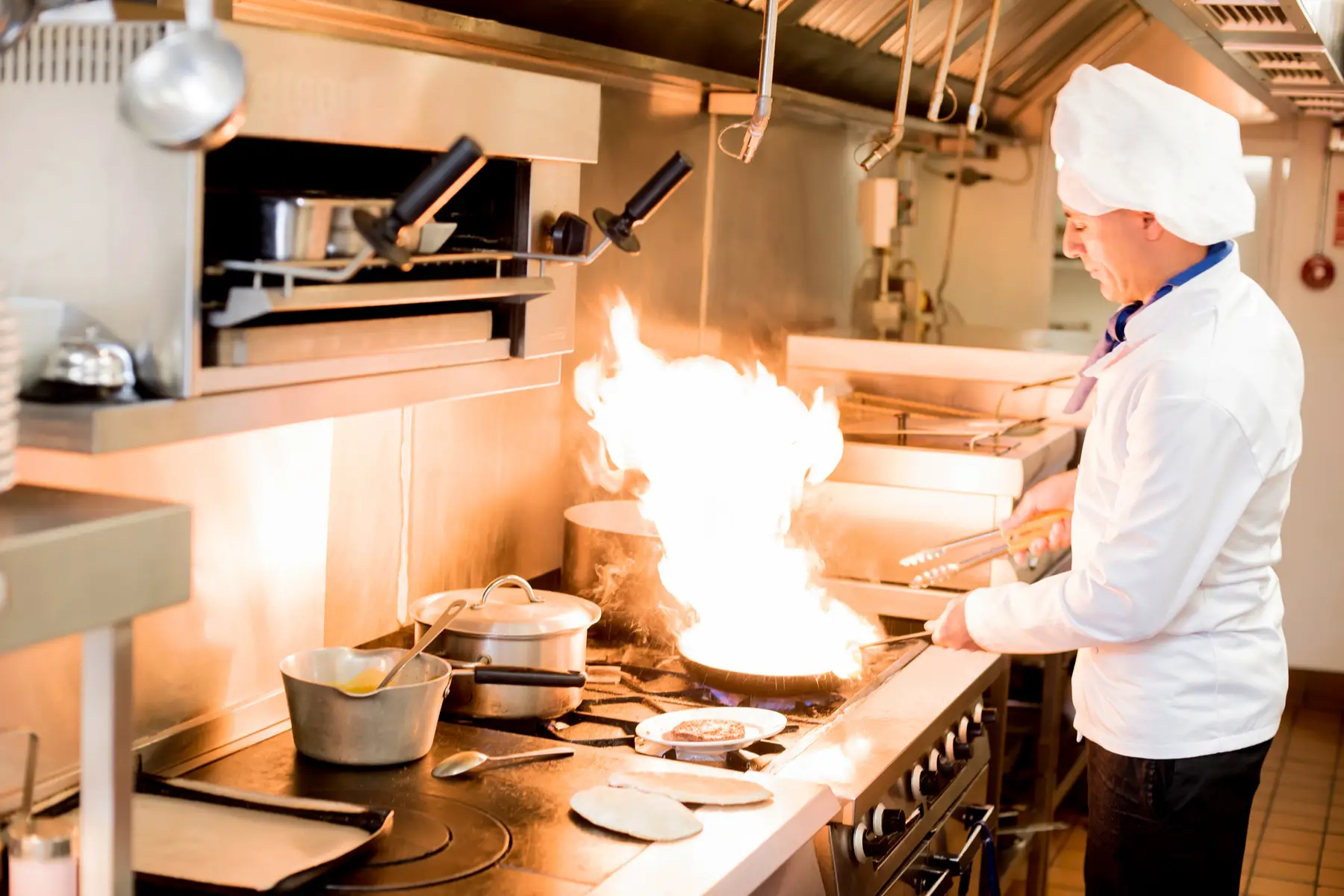Nothing makes you feel more integrated into a new country than eating like a local. And if you happen to be moving to France, there are several unique French eating habits that you should know about in order to pull it off. After all, the country has one of the most sophisticated and revered cuisines in the world; therefore, it’s only natural that it comes with its own set of dining rules and etiquette.
So, if you want to leave your dinner guests with a dazzling impression, here are seven simple guidelines to help you:
HelloFresh
Want to create some classic French dishes in your own kitchen? HelloFresh is a leading meal-kit provider that delivers innovative recipes from France and around the world straight to your doorstep. Choose from a range of recipes and let HelloFresh transform mealtime for you and your family.
1. Forget everything you think you know about French eating habits
Let’s start with some hard truths. The most important first step you will need to take as part of your initiation into the world of French eating habits is ditching the stereotypes. That’s right, believe it or not, not every French person spends their day knocking back caviar and Dom Pérignon; all the while dressed in stripes and a beret.
While it’s true the country is home to such frivolous delicacies as foie gras and frog legs, not everyone enjoys scoffing them, let alone every day. That said, when it comes to less extravagant food and drink such as wine, cheese, and baguettes, the clichés are pretty accurate.

Indeed, in France, you’ll find baguettes on most breakfast, lunch, and dining tables; not to mention restaurant baskets. In fact, the French are so mad about their baguettes that they have not one, but three different names for them!
Unsurprisingly, they also drink a lot of wine, which accounts for more than half of their total alcohol consumption. The French also consume more cheese per capita than anywhere in the world; with every person eating around 30 kilos of it each year. That said, with such a grandiose selection to try; ranging from the staple brie and camembert to the fruity Compté or Brocciu, who can really blame them?
2. Expect to eat dinner a little later
Unlike in some European countries, such as Germany and the Netherlands, where people tend to enjoy an early evening meal at around 18:00, the French prefer to wait until later to eat their dinner. In fact, they typically don’t sit at the dining table until around 20:00 or even later. Families with young children might even start tucking into their evening meal as late as 21:00. Depending on where you have come from, this may take some getting used to when it comes to adapting to your new French lifestyle.
This might involve shifting your body clock slightly to accommodate this typical French eating habit. But if you are already trying to combat jet lag, it’s always better to jump straight into the French rhythm – so to speak – rather than sticking to your old mealtimes. After all, this will help make the adjustment much easier on your stomach. But hey, just remember, it could always be worse. You could be living in Spain and having to wait until well past 22:00 to fill your grumbling belly!
3. Don’t expect to dine at fancy restaurants every night
Contrary to popular belief, not all French people can be found wining and dining at fancy restaurants every night of the week. In fact, generally speaking, they tend to prefer cooking at home rather than eating out on a regular basis. Furthermore, reservations at restaurants are usually only made for special occasions. And with so many mouthwatering French recipes to whip up in their own kitchens, it’s not hard to see why.

That said, if you happen to find yourself in Lyon, then that’s another story. After all, it would be a crime to miss out on all the exquisite haute-cuisine on offer in the gastronomic capital of the world. Cooking is a part of French people’s DNA, and this is understandable, given that the country invented amazing techniques such as braising, flambéing, and poaching. So why not take a leaf out of the French cookbook and whip up some top-notch meals at home? You never know, you could be the next Raymond Blanc!
4. Get ready to up your grocery shopping game
It is a truth universally acknowledged that the French are mad about food. So when it comes to shopping at your nearest French supermarket or grocery store or your local Auchan, be prepared to enter a world of sumptuous delights. French supermarkets come in all shapes and sizes. Furthermore, they sell an overwhelming selection of fantastic food and drink to try, buy, and fall in love with. After all, they don’t call it a hypermarché for nothing.
Put it this way, when you live in France, supermarket shopping will never be a chore again. But to navigate the aisles with ease – and pleasure – it pays to learn some basic French terms and phrases. Fortunately, there are plenty of online resources, such as French for Dummies and Talk in French to get you started. Of course, you could always take it one step further and sign up for some French classes. No pressure.
5. Never eat on the go
If you want to make a good impression when you’re out and about in France, then walking down the street with half a baguette wedged in your mouth is definitely not the way to go. This is because French people never eat in transit. Therefore, munching on anything while walking around in public places is highly frowned upon. This applies to public transport, too. Indeed, scoffing your morning croissant while riding the métro to work will almost certainly attract some scornful looks.

French people consider it important to sit down at a table to eat and use proper etiquette. Therefore, you’re much better off saving your food – and your manners – for la table. But do not carry Époisses de Bourgogne on the Paris Métro, as this stinky cheese is officially banned. Check out these other weird French laws.
6. Quit snacking between meals
If you enjoy grazing throughout the day, then you might be in for a bit of a shock when you move to France. After all, the French are almost famous for not snacking, which perhaps explains how they manage to stay so slim. This may seem somewhat ironic, given that they created some of the richest pastries, desserts, and wine in the world! But if you want to truly adopt French eating habits – and keep your waistline in check – then it’s time to ditch the snacks. Sorry.
But don’t worry, you won’t be left starving off hunger pangs all afternoon. This is because lunch is known to be the biggest and most indulgent meal of the day in France. Unlike in some countries, where lunch involves grabbing a quick sandwich or salad, in France, it is a more substantial and leisurely affair. This often consists of a salad, bread, a main dish, and a dessert. This is also why they tend to eat dinner much later than some of their European neighbors. So if you truly intend to eat like a local, you can look forward to indulging in some seriously hearty lunches.
7. Be prepared for smaller portions
Okay, so we’ve left this one till last for a reason. After all, no one likes to be told they need to shrink down their portions; especially when they’ve just been told to quick snacking. But if truth be told, portion control is one of the biggest aspects of French eating habits that you will quickly observe. Whether they are eating at home or at a restaurant, French people generally opt for smaller portions.
But before you run for the hills or jet off to the States for the ‘supersize’ lifestyle, consider the positives. There is an upside to eating smaller portions. It means that you actually get to regularly enjoy all those delicious carb-filled foods while staying trim. Convinced yet? Well, maybe these mouthwatering French home recipes will sway it. Bon appétit!







